Career
This Mother and Her Daughters are Demonstrating the Possibility & Profitability of Hydroponics
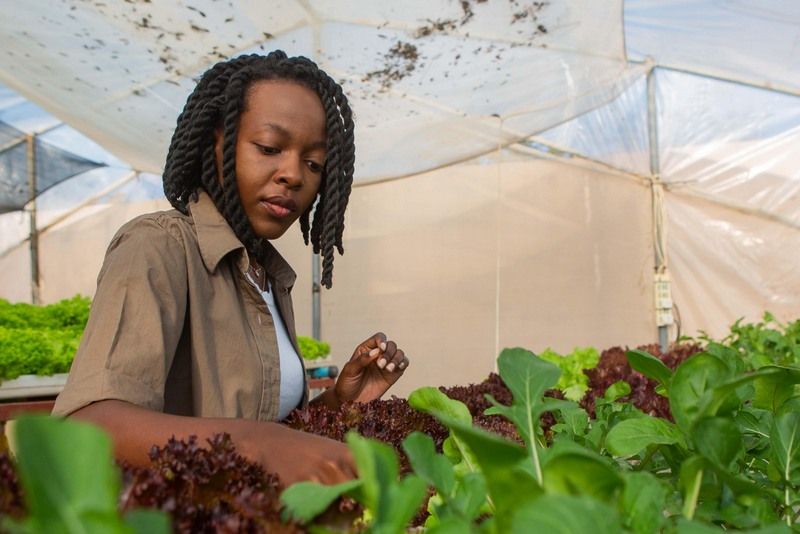
In the back yard of a suburban home, a small family has a thriving agricultural business, proving that thanks to new techniques, inner-city farming is not only possible, it can also be profitable.
“My favourite is the herbs, the kitchen herbs and more specifically basil because it has a beautiful aroma that if you just touch the plant you, you smell it and it just makes you want to go make something beautiful in the kitchen,” explains Tinodaishe Violet Mukarati as she provides a tour around the “farm”.
Chinese cabbage, or bok choy, fancy red lettuce and parsley grow neatly in tight, obedient rows, watered with recycled water via plastic piping. There is no soil; nutrients are fed via the water and the produce is all grown on metal shelves, in plastic-covered greenhouses. There are three such greenhouses in the garden of the suburban home in Borrowdale, Harare. Welcome to the farm of the future.
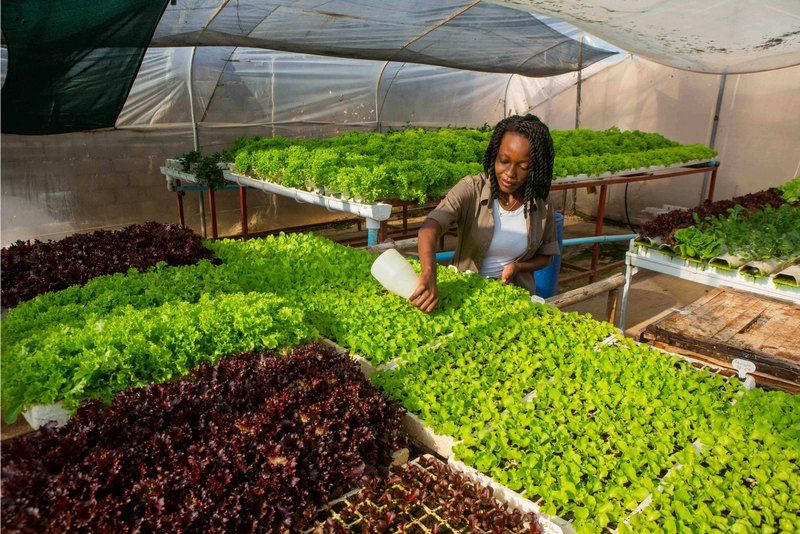
As if to prove that this is no play-farm, a sign for the 160 Hydro Farm provides the backdrop to a beautifully arranged display of wholesome-looking vegetables with prices written up alongside. Patrons of the farm store can pick out vegetables from amongst the neatly displayed items. A box is extra.
In addition to selling to customers at the farm store, the family sells to restaurants and supermarkets, with most produce selling at Harare’s Pamona market. It’s a tightly-run, successful small business.
”In Zimbabwe, we have a mentality that the youth has, they think that you need lots of lands to be able to start a farming business, so this has been very good, you know, with a little bit of space you can produce a lot of vegetables and produce which you can use to generate an income,” Mukarati explained.
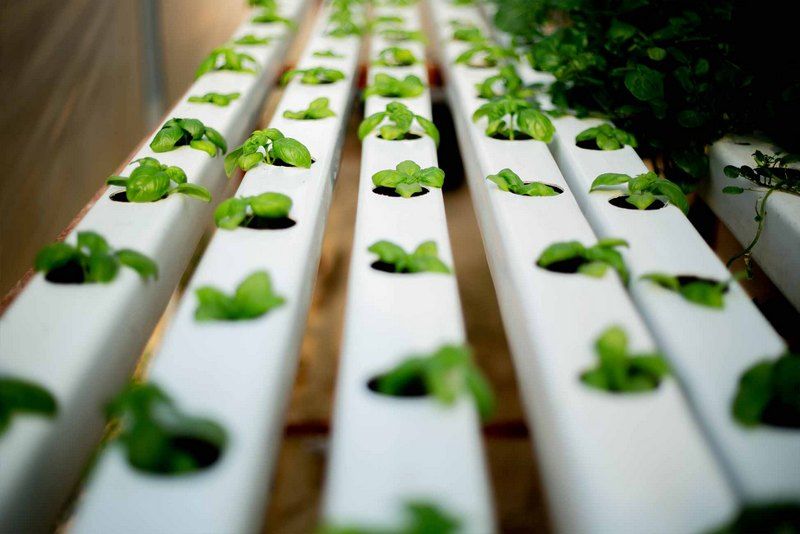
She is on duty today at the farm store and is also doubling up as a farmer. The 28-year-old is the elder of two daughters in a family of three. Mukarati’s mother, Venensia Mukarati, is a bookkeeper and single mother who decided to go farming in 2017. An initial foray into larger-scale farming on land far from the city quickly turned impractical.
While researching how she could farm closer to home – and find a way to draw her daughters into the business – Venensia came across hydroponics. Here, she decided, was an option that wouldn’t require loads of room and would allow for a far more hands-on approach, even for someone living in the city.
A lot of lessons later, plus some six thousand US dollars in investments and family has a thriving hydroponics business, with two main facilities, one on the grounds of the family home in Borrowdale and the other near the Pomona fresh produce market in Harare.
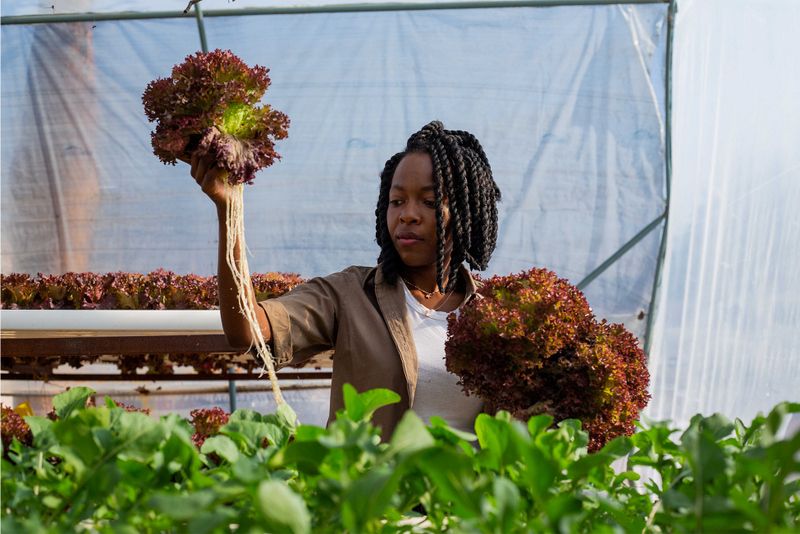
“At the moment with our project, we have 4500 plants per cycle. Before COVID-19, we were making about 1500 US dollars per month. However the pandemic has really affected our revenue and we are now making about plus or minus half of what we used to make before COVID-19,” Tinodaishe explained.
Hydroponics is being viewed as something of a revolution in agribusiness, due to its ability to generate significant amounts of food in small spaces, while utilizing systems and procedures that don’t harm the environment. Since it can be practised in soil-poor and high-density areas, it has become popular the world over as a means of producing food in inner cities. However, as Tinodaishe Mukarati points out, getting started does require some planning and capital.
“For us to start up we needed about 6,000 US dollars. That was including the pipes, the greenhouse, everything that we needed to have the project start rolling” said Tinodaishe explained.
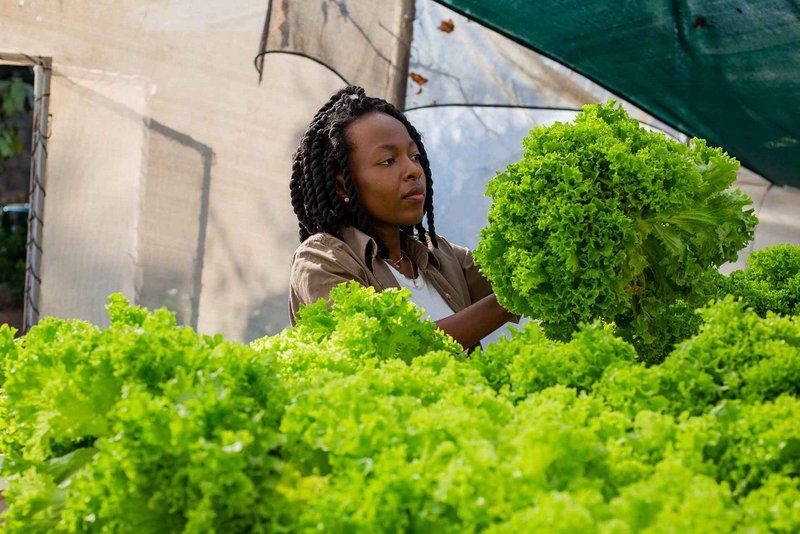
The business subsequently expanded into three garden greenhouses, then into a commercial greenhouse, bigger than the three garden greenhouses put together. There is another role that the garden farm plays, however; the family has turned it into a hydroponics training facility. The farm regularly hosts groups of students keen to learn more about the business potential of hydroponics. Again, COVID-19 has impacted the numbers but there is still a regular trickle of students coming through the doors.
“We are teaching the youth. We are teaching from as young as 5-year-olds… We have school groups coming in as well… Youth from rural areas within the local city and everywhere. They do love it, the young ones have innovative ideas, they have so much to show us, so much to teach us, so many questions,” added Tinodaishe.
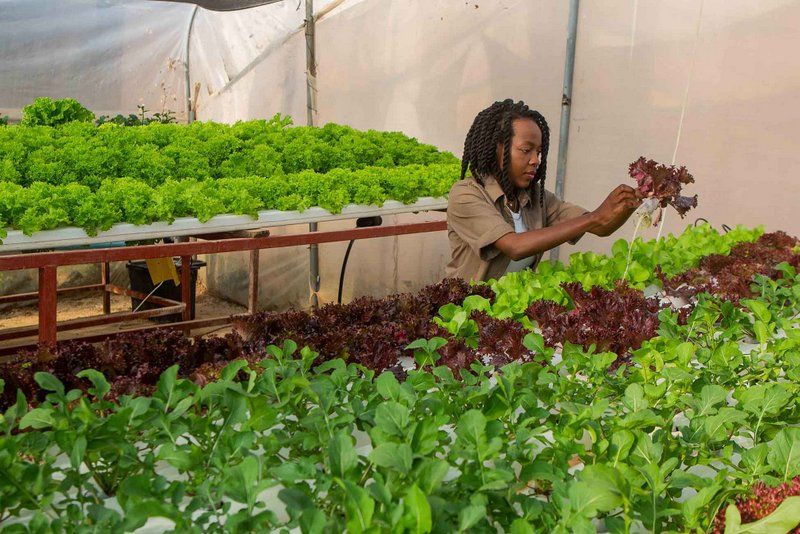
Venensia’s vision is for a society that is far more engaged with the actual production of food. And while there are risks attached to any entrepreneurial venture, the rewards are a society that is better balanced and less dependent on fragile food chains. Venensia’s daughters are keen to further that vision.
“This is something that a lot of people can do, 365 days a year as you’re not limited by space, you’re not limited by weather, you’re not limited by a lot of factors in regards to losing crops, as the greenhouse protects the plants from diseases,” said Tinodaishe.















